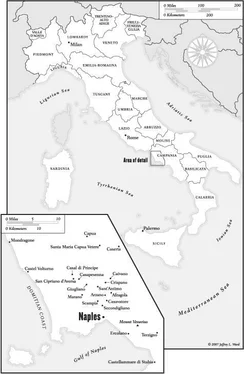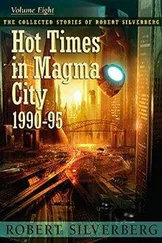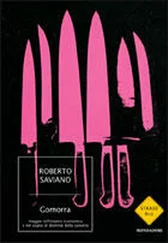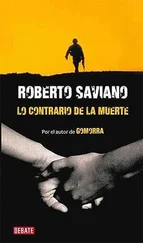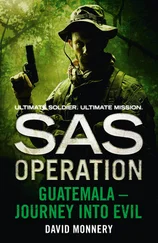Roberto Saviano - Gomorrah - A Personal Journey into the Violent International Empire of Naples’ Organized Crime System
Здесь есть возможность читать онлайн «Roberto Saviano - Gomorrah - A Personal Journey into the Violent International Empire of Naples’ Organized Crime System» весь текст электронной книги совершенно бесплатно (целиком полную версию без сокращений). В некоторых случаях можно слушать аудио, скачать через торрент в формате fb2 и присутствует краткое содержание. Жанр: Старинная литература, на английском языке. Описание произведения, (предисловие) а так же отзывы посетителей доступны на портале библиотеки ЛибКат.
- Название:Gomorrah: A Personal Journey into the Violent International Empire of Naples’ Organized Crime System
- Автор:
- Жанр:
- Год:неизвестен
- ISBN:нет данных
- Рейтинг книги:5 / 5. Голосов: 1
-
Избранное:Добавить в избранное
- Отзывы:
-
Ваша оценка:
- 100
- 1
- 2
- 3
- 4
- 5
Gomorrah: A Personal Journey into the Violent International Empire of Naples’ Organized Crime System: краткое содержание, описание и аннотация
Предлагаем к чтению аннотацию, описание, краткое содержание или предисловие (зависит от того, что написал сам автор книги «Gomorrah: A Personal Journey into the Violent International Empire of Naples’ Organized Crime System»). Если вы не нашли необходимую информацию о книге — напишите в комментариях, мы постараемся отыскать её.
Gomorrah: A Personal Journey into the Violent International Empire of Naples’ Organized Crime System — читать онлайн бесплатно полную книгу (весь текст) целиком
Ниже представлен текст книги, разбитый по страницам. Система сохранения места последней прочитанной страницы, позволяет с удобством читать онлайн бесплатно книгу «Gomorrah: A Personal Journey into the Violent International Empire of Naples’ Organized Crime System», без необходимости каждый раз заново искать на чём Вы остановились. Поставьте закладку, и сможете в любой момент перейти на страницу, на которой закончили чтение.
Интервал:
Закладка:
“Come, Uncle Antonio’s here.”
A clear, unequivocal message. Jimmy shot Nugnes twice in the head. The boss finished him off himself. They dumped the body in a forty-meter well in the middle of the countryside and threw in two grenades. For years nothing was known about Antonio Nugnes. People would call in saying they’d spotted him in every corner of Italy, but he was actually at the bottom of a well, buried under tons of dirt. Thirteen years later, Augusto and his most trusted men told the carabinieri where to find the deputy mayor who had dared to oppose the growth of La Torre business. When the carabinieri started to collect the remains, they realized they were not just of one man. Four tibiae, two skulls, three hands. For more than ten years, Nugnes’s body lay next to that of Vincenzo Boccolato, a Camorrista connected to Cutolo, but who joined the La Torres after Cutolo’s defeat.
Boccolato was condemned to death because he deeply offended Augusto in a letter he sent to a friend from prison. The boss came across it by chance as he wandered around in an affiliate’s living room. Flipping through some letters and papers, his eye caught his name. Curious, he read the heap of insults and criticisms Boccolato dumped on him. Even before finishing the letter, the boss decided he had to die. He sent Angelo Gagliardi, another former Cutolo affiliate, to kill him, as Boccolato would get in his car without suspecting anything. Friends make the best killers. They do a clean job, no need to chase after a target who runs off screaming. Silently, when you least suspect it, they point the barrel of a gun at your neck and pull the trigger. Augusto La Torre wanted executions to be carried out with a friendly intimacy. He couldn’t bear being ridiculed and didn’t want anyone to laugh when his name was uttered. No one should dare.
Luigi Pellegrino, whom everyone knew as Gigiotto, was one of those people who enjoyed gossiping about the city’s powerful figures. Lots of kids in the land of the Camorra whisper about the sexual preferences of bosses, the orgies of neighborhood capos, and the whoring daughters of clan businessmen. The bosses usually put up with it, though. They’ve got other things to think about, and after all, it’s inevitable that the people at the top give rise to quite a bit of talk. Gigiotto spread rumors about the boss’s wife, saying he’d seen her with one of Augusto’s most trusted men. Seen the boss’s driver take her to meet her lover. The La Torre clan’s number one, the man who controlled everything, had a wife who was cheating on him right under his nose, and he didn’t even realize it. Gigiotto repeated his stories, always with more details, always with slight variations. Lie or no lie, by now everyone was telling the funny story of the boss’s wife’s affair with her husband’s right-hand man. They were careful to mention the source: Gigiotto. One day Gigiotto was walking on the sidewalk in downtown Mondragone when he heard a motorcycle coming a little too close. He started to run as soon as it slowed down. Two shots were fired, but Gigiotto, zigzagging among people and lampposts, fled while the killer, stuck behind the motorcyclist, emptied his entire clip. So he chased Gigiotto on foot, to a bar where he was trying to hide. He pulled out his pistol and shot him in the head in front of dozens of people who vanished quickly and silently a moment later. According to the investigations, it was Giuseppe Fragnoli, clan regent, who had wanted Gigiotto eliminated; without even asking for authorization, he decided to silence the tongue wagger who was sullying the image of the boss.
In Augusto’s mind, Mondragone, the surrounding countryside, coastline, and sea were nothing more than the clan’s workshop, a laboratory for him and his colleagues, an area from which to extract material to be churned into profit by their companies. He categorically prohibited drug dealing in Mondragone and along the Domitian coast, issuing the severest order that Caserta bosses give their subordinates, or anyone. The command was morally motivated: to save his fellow townspeople from heroin and cocaine—but it was more to keep the clan’s unskilled pushers from gaining an economic foothold in his territory, from growing rich within the bosom of power and being able to oppose his leadership. Drugs from Holland, sold in Lazio by the Mondragone cartel, were absolutely forbidden. People from Mondragone had to get in the car and drive all the way to Rome to buy pot, coke, and heroin from Neapolitans, Casalesi, and, the Mondragonesi themselves. The clan formed an antidrug group called GAD, which would call the police switchboard and claim responsibility for its actions. If they caught you with a joint in your mouth, they’d break your nose. If a wife discovered a packet of cocaine, all she had to do was let the GAD know, and after being kicked and punched in the face, after the gas stations refused to fill his tank for the drive to Rome, her husband would change his mind.
An Egyptian boy, Hassa Fakhry, paid heavily for being a heroin addict. He raised pigs. Black Caserta pigs, a rare breed. Darker than buffaloes, squat and hairy, accordions of fat that were turned into lean sausages, tasty salami, and flavorful chops. Being a swineherd is a horrendous job. Constantly shoveling manure, slitting the animals’ throats, hanging them upside down, and letting the blood drip into basins. Hassa had been a driver in Egypt, but he came from a family of farmers so he knew how to handle animals. But not pigs. To a Muslim, pigs were doubly disgusting. But better to take care of pigs than spend the whole day shoveling buffalo manure as the Indians do. Pigs don’t shit half as much, and pigsties are tiny compared to bovine stalls. Every Arab knows this, so they go for pigs rather than ending up faint with exhaustion from the buffalo. Hassa started doing heroin. He’d take the train to Rome, make his purchase, and return to the pigsty. He became a serious addict and never had enough cash, so his pusher suggested he try peddling in Mondragone, a city with no drug market. Hassa started pushing outside the Bar Domizia. He established a clientele and could earn in ten hours what he’d make in six months as a swineherd. All it took was one phone call on the part of the bar owner to put an end to his activity. That’s how it works around here. You call a friend who calls his cousin who tells his compare who relays the news to whoever needs to know. A chain of which only the beginning and end points are known. After a few days La Torre’s men, the self-proclaimed GAD, went right to Hassa’s hovel and knocked. They pretended to be police officers so he wouldn’t escape amid pigs and buffalo, forcing a chase in the mud and shit. They loaded him into the car and started to drive away, but they didn’t take the road to headquarters. As soon as Hassa realized they were about to kill him, he suffered a strange allergic reaction. His body started to swell up, as if being forced full of air—as if fear had sparked an anaphylactic shock. Augusto La Torre himself, when he told the story to the judges, was aghast at the metamorphosis: the Egyptian’s eyes became tiny, as if being sucked into his head, his pores exuded a thick, honey sweat, and his mouth foamed ricotta. There were eight killers, but only seven fired. The pentito Mario Sperlongano stated, “It seemed completely pointless to shoot at a dead body.” But that’s how it always was. Augusto seemed intoxicated by his own imperial name. Every one of his legionnaires had to stand behind him and all his actions. Murders that could be taken care of by one or two men were instead carried out by all his most trusted legionnaires, who were usually expected to fire at least one shot, even if the person was already dead. One for all and all for one. Augusto required full participation, even when it was superfluous. The constant fear that someone could pull back made him always act in a group. Clan dealings in Amsterdam, Aberdeen, London, and Caracas might make some affiliate lose his head and think he could go out on his own. Here savageness is the true value of commerce: to renounce it is to lose everything. After they killed Hassa Fakhry, they stuck hundreds of insulin syringes, the kind heroin addicts use, in his body. A message on his flesh, which everyone in Mondragone and Formia would immediately understand. The boss wasn’t concerned about other people. When Paolo Montano, known as Zumpariello, one of the most reliable men in his hit squad, started doing drugs and couldn’t break his cocaine habit, Augusto had one of his faithful friends summon him to a meeting on a farm. When they arrived, Ernesto Cornacchia was supposed to empty his entire clip into Zumpariello, but the boss was standing too close and Cornacchia was afraid he would also hit him. Seeing Ernesto hesitate, Augusto took out his pistol and killed Montano himself. The shots pierced his body, hitting Cornacchia as well, but he preferred to take a bullet rather than risk wounding the boss. Zumpa-riello was thrown in a well and blown up, Mondragone-style.
Читать дальшеИнтервал:
Закладка:
Похожие книги на «Gomorrah: A Personal Journey into the Violent International Empire of Naples’ Organized Crime System»
Представляем Вашему вниманию похожие книги на «Gomorrah: A Personal Journey into the Violent International Empire of Naples’ Organized Crime System» списком для выбора. Мы отобрали схожую по названию и смыслу литературу в надежде предоставить читателям больше вариантов отыскать новые, интересные, ещё непрочитанные произведения.
Обсуждение, отзывы о книге «Gomorrah: A Personal Journey into the Violent International Empire of Naples’ Organized Crime System» и просто собственные мнения читателей. Оставьте ваши комментарии, напишите, что Вы думаете о произведении, его смысле или главных героях. Укажите что конкретно понравилось, а что нет, и почему Вы так считаете.
